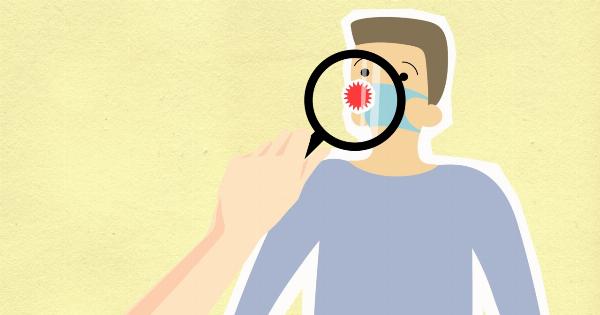A cough can be a bothersome symptom, especially when it does not seem to go away. If you have been suffering from an unrelenting cough, you may be wondering whether it is time to visit a doctor or if you can continue trying home remedies.
Here, we will discuss different types of coughs, their causes, and when it is necessary to see a healthcare provider.
Types of Coughs
Coughs can be classified into two broad categories: productive and nonproductive. Productive coughs are also known as wet or chesty coughs because they produce mucus or phlegm.
On the other hand, nonproductive coughs are dry and do not produce any mucus or phlegm.
Causes of a Cough
Since a cough can be caused by a plethora of factors, it can sometimes be difficult to identify the underlying cause. Here are some common causes of a cough:.
1. Respiratory Infections
Colds, flu, bronchitis, and pneumonia are respiratory infections that can cause a cough. These infections can be caused by bacteria or viruses and may present with other symptoms like fever, fatigue, and sore throat.
2. Allergies
Allergic reactions to substances like dust, pollen, or pet dander can cause a cough. These coughs are usually nonproductive and can be accompanied by symptoms like itching, sneezing, and runny nose.
3. Asthma
Asthma is a chronic lung disorder that causes inflammation of the airways. This inflammation can make breathing difficult and lead to a cough that can be productive or nonproductive.
4. Gastroesophageal Reflux Disease (GERD)
GERD is a condition where stomach acid flows back into the esophagus, leading to heartburn and a persistent cough.
5. Medications
Certain medications, such as ACE inhibitors used for high blood pressure, can cause a persistent cough.
When to See a Doctor for a Cough
If your cough has been ongoing for more than a week or is accompanied by other symptoms like fever, chest pain, and breathlessness, it is important to see a doctor.
Your doctor can diagnose the underlying cause of your cough and prescribe the appropriate treatment. If you have a history of lung disease or are a smoker, it is especially important to seek medical attention promptly.
Moreover, if you notice any of the following symptoms, it is crucial to visit a healthcare provider immediately:.
- Coughing up blood
- Shortness of breath or wheezing
- Chest pain
- Lethargy and fatigue
- Significant weight loss
Treatment for a Cough
The treatment for a cough depends on the underlying cause. Sometimes, a cough can be relieved by lifestyle changes such as hydration, rest, and avoiding irritants.
Other times, medications such as cough suppressants, decongestants, or antibiotics may be needed.
Conclusion
A cough can be a nuisance, especially when it does not seem to go away. Knowing the cause of your cough can help you determine if a trip to the doctor is necessary.
If your cough has been ongoing for more than a week or is accompanied by other symptoms, it is important to seek medical attention. With proper diagnosis and treatment, you can find the relief you need from a persistent cough.





























